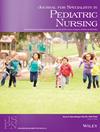Caring for nontraditional families: Kinship, foster, and adoptive
Abstract
Purpose
Information about nontraditional (kinship, foster, and adoptive) families is typically scattered or overlooked both in nursing education and nursing practice settings. Using a nursing-centric, population-focused lens, the current state of nontraditional families in the United States is briefly described. An overview of the challenges and psychological dynamics involved when a nonbiological parent assumes the role of caregiver is provided.
Conclusion
Based on the 2010 Census findings and other indicators, we now understand that nontraditional families and their children make up a considerable portion of the population. Nurses, regardless of level of practice, have the potential to positively impact health outcomes of nontraditional parents and their children. Knowledge of the formation and needs of nontraditional families can inform, and improve, culturally safe, trauma-informed nursing care.
Practice implications
This discussion is a first step in appreciating the formation of nontraditional families and the importance of trauma-informed, unbiased, nonstereotypic discourse in nursing care. By describing the heterogeneity of how families are built through kinship care, foster placements, and adoptive homes, nurses’ assessments and interventions will be informed and through a lens of the high potential for past traumas. With this foundational knowledge, nurses interfacing with nontraditional families are better prepared to provide much needed support and relevant care for this unique population.

 求助内容:
求助内容: 应助结果提醒方式:
应助结果提醒方式:


